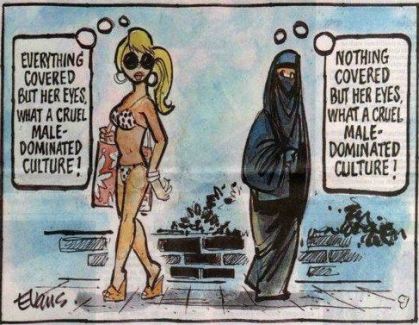By Mike Cronin
The commentariat are in an uproar over President Trump’s alleged use of the term “shit-hole” to describe Haiti and parts of Africa. They say it’s a racist slur.
If the president did indeed use that word in a public setting, it’s noteworthy for its vulgarity, but is it really a racial slur? Is it even wrong?
Let’s consider Haiti. It is the poorest nation in the Western Hemisphere. Right next door to Haiti – on the very same island – the Dominican Republic has the largest economy in Central America and the Caribbean, and it enjoys a much better standard of living. Why?
When the January, 2010 7.2 magnitude earthquake hit Port-au-Prince, nearly a quarter of a million people died because something like 60-70% of all the buildings were severely damaged or collapsed outright, including the presidential palace. Compare that to the exponentially more powerful earthquake that hit Chile that same month, where less than a thousand people died. What accounts for the different results? Form of government, property rights, building codes, and insurance. Chilean citizens have a semi-capitalistic country, a decent economy, property rights, and insurance, so they built their buildings to be earthquake resilient – and survived the more powerful quake in much better shape.
What is now Haiti, on the island of Hispaniola, was the first place Christopher Columbus landed during his first voyage in 1492. Within the first decade, the Spanish began bringing in African slaves, and within 25 years, much of the natives were either enslaved by the Spaniards or killed by diseases brought by them…and the Spaniards were themselves being killed by tropical fevers. Before long, the Spanish were more concerned with conquering the mainlands of North and South America, and began to lose interest in Hispaniola. Haiti became a haven for pirates in the interim, but by the late 1700s, France was a power, and Spain ceded the western third of Hispaniola to the French. (To this day, Spanish is spoken in the Dominican Republic, while French-influenced Haitian Creole is spoken in Haiti.) Napoleon sent French troops to enforce French rule, but many of them succumbed to tropical fevers, and in 1804, after a successful revolt against the weakened French forces, the slaves declared themselves free and named their nation Haiti. It was one of the few bright spots in the history of this place.
While Haiti began as the first nation founded by slaves who had “freed” themselves via revolt…they never truly freed themselves. The leader of the revolt, Jean-Jacques Dessalines, declared himself Emperor Jacques I in 1804. The first “free” Haitians simply traded their physical chains and European masters for a succession of Haitian masters and the chains of varying degrees of dictatorship. Except for a brief period around the last two decades of the 19th Century, Haiti has never been a prosperous country, partly because Haitians themselves have never maintained the kind of rights-respecting government that allows prosperity, and partly due to massive foreign debt.
Indeed, at the behest of US banks to whom Haiti was deeply in debt, the US military occupied Haiti from 1915 to 1934. The US occupation had mixed results. There were some republican reforms to the government and much improved infrastructure, which was often accomplished by impressing locals into labor gangs in lieu of charging taxes, which of course generated resentment and resistance from the local population. Between the end of the US occupation in 1934 and now, the history of Haiti amounts to a succession of “presidents” with dictatorial powers enriching themselves and their cronies on the backs of the Haitian people and at the expense of Haiti’s natural resources, peppered with coups and revolts and foreign interventions.
The history of Haiti is one of slavery, disease, dictatorships, piracy, environmental destruction, foreign intervention, abject poverty, neglect, exploitation, corruption, and natural disaster. Shit-hole may be a rude word to describe it, but is it inaccurate? And how is it racist?





